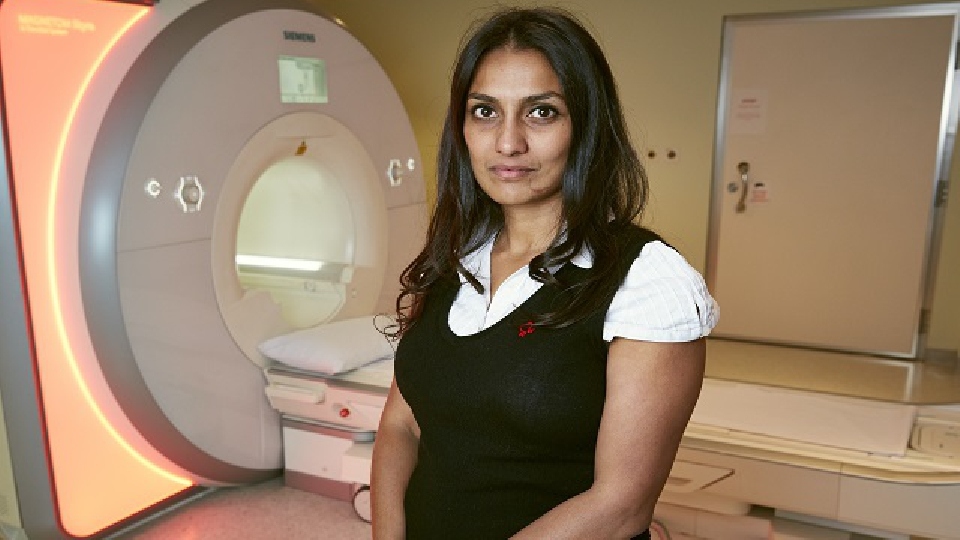Around 31,446 fewer vital heart ultrasounds in the region during lockdown
Date published: 16 July 2020

Dr Sonya Babu-Narayan
Around 31,446 fewer heart ultrasound tests were carried out in the North West after lockdown began, according to the British Heart Foundation.
Latest NHS England data shows the number of completed echocardiograms fell by two-thirds (66 per cent) across April and May compared to February this year.
Echocardiograms, also known as echo tests, are ultrasound scans that enable doctors to diagnose, give a prognosis, and determine follow-up treatment for a range of heart conditions, such as heart valve disease, and heart failure.
In Oldham, the test figures have plunged by 79 per cent, down from 658 in February, 2020, to 112 in April and 168 in May.
The North West figures show the considerable impact the pandemic has had on patient treatment and care.
Only 14,714 echo tests were carried out in April and May this year, compared to 46,160 completed in the same months last year.
The BHF says heart patients have been hit doubly hard by the Covid-19 pandemic.
Long waits for tests like echocardiograms could lead to more deaths from undiagnosed heart conditions.
At the same time, people living with heart and circulatory disease are more likely to develop complications from Covid-19.
As the number of completed echo tests has fallen, patients have been waiting longer for these tests due to a fall in GP referrals and the temporary pausing of cardiology services for all but the most urgent cases.
By the end of May this year, around 62 per cent of people referred for an echo had been on the waiting list for six or more weeks, compared to just three per cent at the end of February.
Long-term delays to this kind of treatment and care could lead to a devastating domino effect which results in greater pressure on hospitals and worsening health for patients, according to the BHF.
The leading charity is calling for heart services to be reinstated quickly and safely as a priority.
Dr Sonya Babu-Narayan, Associate Medical Director at the BHF and Consultant Cardiologist, said: “Heart patients have been hit doubly hard by the coronavirus pandemic.
"Not only are they at greater risk of complications from Covid-19, but they have also faced delays to vital treatment and care.
“Echocardiograms and other tests are used to diagnose and monitor a range of heart and circulatory conditions and are often among the first steps in someone’s treatment journey.
"Delaying them could have a devastating knock-on effect on the rest of their care, preventing them from accessing the specialist treatments they may desperately need in time.
"Ultimately, this could lead to patients becoming sicker as they await care and, ultimately, more deaths.
“The NHS is now facing a cliff edge as it contends with resuming services and tackling a significant and growing backlog of treatment, all while continuing to fight Covid-19.
"These challenges are great, but they are not insurmountable.
"Restoring and maintaining care for patients living with long-term conditions, such as heart and circulatory diseases, must now become a priority.”
The latest figures come as BHF-funded research published this week also showed how important echo imaging can be for patients with coronavirus in hospital.
The paper, published in European Heart Journal - Cardiovascular Imaging, revealed that one in three patients hospitalised with Covid-19 who received an echocardiography scan had their treatment changed as a result.
The BHF is now calling for the full breadth of heart services to be restored step by step as the NHS begins to look beyond just providing emergency care.
Echo tests must be carried out in a safe environment and wherever possible, heart investigations need to be co-ordinated to limit the number of times a patient has to visit hospital.
People with stable heart conditions who may have become unstable during lockdown must be followed up urgently. In addition, services that help patients stay out of hospital must be reinstated to reduce pressure on the NHS in the long term.
Diagnosing and treating risk factors for heart and circulatory diseases also remains crucial to prevent additional cases far into the future.
During the pandemic, the BHF is doing all it can to offer information and support to people living with heart and circulatory diseases throughout the current crisis, and beyond, through its website and Heart Helpline.
Do you have a story for us? Want to tell us about something going on in and around Oldham? Let us know by emailing news@oldham-chronicle.co.uk , calling our Oldham-based newsroom on 0161 633 2121 , tweeting us @oldhamchronicle or messaging us through our Facebook page. All contact will be treated in confidence.
Most Viewed News Stories
- 1Drug gang kingpin and Failsworth associate jailed after detectives bring down criminal empire
- 2Carly set to light up Dr Kershaw’s tree in memory of her father
- 3Finance boss slammed for ‘repeated no-shows’ as borough faces £23m budget hole
- 4FCHO highlight Need a Hand customer support campaign
- 5Former popular pub could be demolished by Colin the Caterpillar creators




